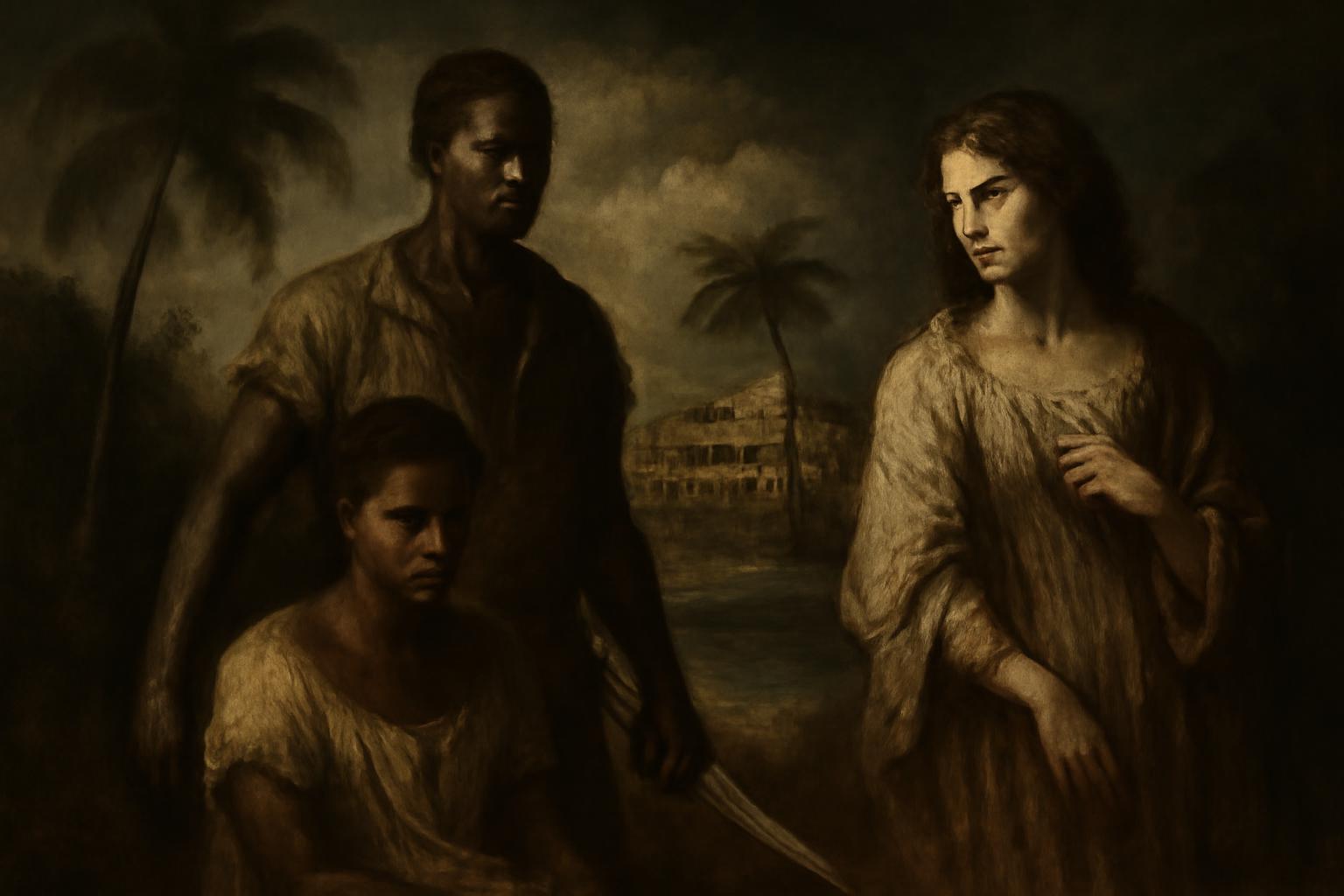And so, upon the white sands of Punta Cana, golden strands await the privileged decadents of the North—tourists who descend, ravenous for escape, upon the simulacrum of paradise, unperturbed by the grim shadow that darkens the far side of the island. In the glare of a Caribbean sun, the Dominican Republic flourishes—its beaches glimmering as the simulacra of Eden—but always at the price of silent suffering, its construction and hospitality industries indebted to the invisible, unacknowledged labor of desperate arrivals from Haiti, whose miseries are too easily ignored.
It is a tale not merely of economics or geopolitics, but one aching with the undertones of Greek tragedy. Hispaniola itself, rent asunder, is Oedipus’s body torn by fate: one half gilded for spectacle, the other plunged into Dionysian chaos, all children of colonial violence and the curse of ancestral debt. How cruel is the irony that Haiti, once the world’s mightiest and most brutalized sugar colony, the first Black republic—its freedom bought with an ocean of blood—was strangled by the reparations demanded by the French, thrown into the abyss of unpayable debt, its nascent independence immediately chained, a Prometheus whose liver is eternally devoured for daring to defy the gods of empire.
Nietzsche knew well this eternal recurrence of suffering—that a civilization is built not upon rational progress, but upon a "will to power" that manifests as domination, subjugation, forgetting. The tourist, beholding turquoise waves from a resort infinity pool, does not see the filo of the blade hanging over every Haitian laborer’s neck, nor the interminable looping of abuse and exclusion. The Dominican authorities, keen to fortify their borders with walls and wire, enact a drama as old as Antigone, denying the humanity of the other, casting out the foreigner to preserve the illusion of order.
Is this not the fate bequeathed to us by modernity? The island, like the West itself, is partitioned—one side lit by delusions of affluence and security, the other condemned to darkness, the eternal return of violence, collapse, and unheeded wailing. All the while, the “international community” murmurs platitudes, their inertia affirming Schopenhauer’s bleakest vision: that compassion is but a thin, unreliable veil over an abyss of indifference.
We witness, again, the decline of humane culture—the atrophy of solidarity, the banishment of tragedy from public consciousness. In the ruins of Western idealism, economic calculation is all that remains; Achilles weeps for Patroclus, but no one listens. The border, bristling with barbed wire, is not just a line between nations, but the visible scarlet wound between humanity and its own promise.
